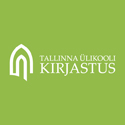The Early Expression of (Un)certainty in Typologically Different Languages: Evidence from Russian, Estonian and Hebrew
Abstract
The article discusses the early means of expressing the epistemic notions of certainty and uncertainty (epistemic markers) in three typologically-different languages – Russian, Estonian and Hebrew. The results are based on an analysis of naturalistic speech samples of 9 typically-developing monolingual children, recorded from ages 1;3 to 6;2. The emergence of epistemic markers in child speech is compared to child-directed speech. Acquisition of means of expressing epistemic modality starts to develop at the end of the second year of life with the marking of uncertainty. The findings indicate an expansion of epistemic evaluation from objective situations in the physical world to the mental world. A comparison of child speech with the input reveals that both the frequency of a marker in the target system and the degree of epistemic semantics influence its emergence and development. Differences between languages mostly concern the frequency of usage of epistemic markers and the degree of epistemic evaluation children start with.
Full Text:
PDFDOI: https://doi.org/10.22601/PET.2018.03.04
Refbacks
- There are currently no refbacks.
Published by / Kirjastaja:

ISSN 2504-6616 (print/trükis)
ISSN 2504-6624 (online/võrguväljaanne)
